
Nicholas Drain Lowe is an English singer-songwriter, musician and producer. A noted figure in pub rock, power pop and new wave, Lowe has recorded a string of well-reviewed solo albums. Along with being a vocalist, Lowe plays guitar, bass guitar, piano and harmonica.
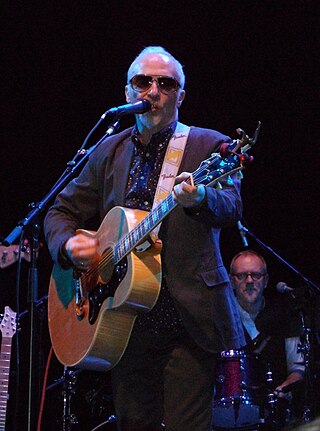
Graham Thomas Parker is an English singer-songwriter, who is best known as the lead singer of the British band Graham Parker & the Rumour.
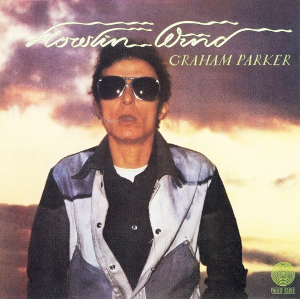
Howlin' Wind is the debut album by English singer-songwriter Graham Parker and his band the Rumour, released in April 1976. The Rumour were mainly former pub rock musicians, including guitarist Brinsley Schwarz and keyboardist Bob Andrews of the band Brinsley Schwarz; Parker's recent jobs included working as a petrol pump attendant. The music is a blend of rock and roll, R&B, reggae and folk music, behind Parker's searingly intelligent lyrics and passionate vocals. Critics likened Parker's spirit to British punk rock, then in its early stage, and retrospectively to that of singer-songwriters Elvis Costello and Joe Jackson, who would release their debut records within a few years of Howlin' Wind.
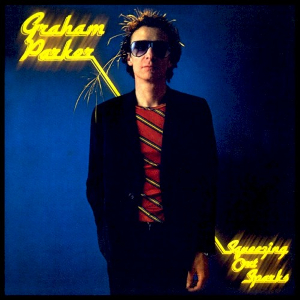
Squeezing Out Sparks is the fourth studio album by English singer-songwriter Graham Parker and his band the Rumour. The album was released in March 1979. Although the Rumour were not credited on the cover, their name was included on the album label.

The Rumour were an English rock band active in the late 1970s and early 1980s. They are best known as the backup band for Graham Parker, whose early records were credited to Graham Parker & the Rumour. However, the Rumour also recorded on their own, releasing three albums: Max (1977), Frogs, Sprouts, Clogs and Krauts (1979), and Purity of Essence (1980).
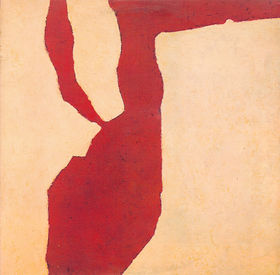
The Up Escalator is an album by Graham Parker and the Rumour, released on 23 May 1980 by Stiff Records as LP and as cassette. In the USA, the album was released by Arista. Released after Parker's successful 1979 album Squeezing Out Sparks, the album features production by Jimmy Iovine.

Steady Nerves is a 1985 album by Graham Parker and the Shot.

The Real Macaw is an album by Graham Parker, released in 1983.
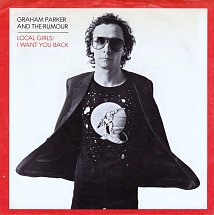
"Local Girls" is a song by British rock musician Graham Parker, recorded with his backing band the Rumour. The song was released on his 1979 album, Squeezing Out Sparks.

Another Grey Area is the first solo album by Graham Parker. It was released in 1982 on the Arista label. The album was produced by Jack Douglas and Graham Parker, and features Nicky Hopkins on acoustic piano.
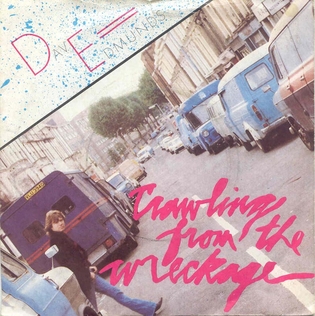
"Crawling from the Wreckage" is a new wave song written by Graham Parker and first released by Dave Edmunds in 1979. Parker, who was unsatisfied with the song, contributed the song to Edmunds, included it on his album Repeat When Necessary. Edmunds' version peaked at number 59 on the UK Singles Chart.

The Parkerilla is a 1978 live double album by Graham Parker and The Rumour. It was recorded at Winter Gardens, Bournemouth, Manchester Opera House, Apollo Theatre, Oxford and The Palladium, New York City; and mixed at Rockfield Studios, Wales.

Nick Lowe is an English singer-songwriter, musician, and producer. His discography consists of 14 studio albums, 1 live album, 3 EPs, 23 singles, and 6 compilations. In addition, he has been a performer and producer on numerous albums by other artists.

"Discovering Japan" is a song by British rock musician Graham Parker, recorded with his backing band the Rumour. The song was released on his 1979 album, Squeezing Out Sparks.
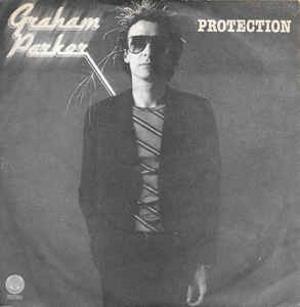
"Protection" is a song by British rock musician Graham Parker, recorded with his backing band the Rumour. The song was released on his 1979 album, Squeezing Out Sparks.

"You Can't Be Too Strong" is a song by British rock musician Graham Parker, recorded with his backing band the Rumour. The song was released on his 1979 album, Squeezing Out Sparks. Written about abortion, the song originated as a country-style shuffle before Parker and producer Jack Nitzsche changed it to a slower acoustic ballad.
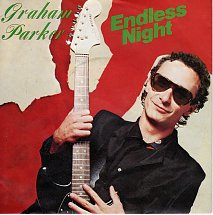
"Endless Night" is a song written by rock musician Graham Parker and performed by Graham Parker and the Rumour for their 1980 studio album The Up Escalator. Originally written for the 1980 film Cruising, "Endless Night" features lyrics about aging in rock 'n' roll. The song notably featured backing vocals from musician and Parker fan Bruce Springsteen.
"Passion Is No Ordinary Word" is a song by British rock musician Graham Parker, recorded with his backing band the Rumour. The song was released on his 1979 album, Squeezing Out Sparks. Written about faking one's emotion, the song features a stripped-down arrangement.

"Wake Up (Next to You)" is a song written by British rock musician Graham Parker and performed by Graham Parker and the Shot. Inspired by Smokey Robinson, the song was crucial in convincing Elektra Records to allow Parker and producer William Wittman to record a full album. The song is also notable for Parker's breathy singing and its lush arrangement.
"Saturday Nite Is Dead" is a song by British rock musician Graham Parker, recorded with his backing band the Rumour. The song was released on his 1979 album, Squeezing Out Sparks. Written about his experiences growing up in suburbia, the song features caustic lyrics and an angry vocal delivery.


















